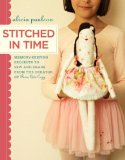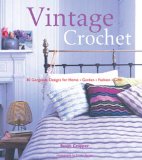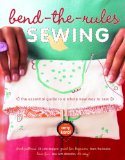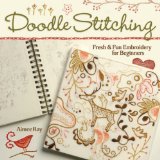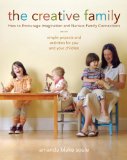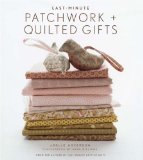I read a lot last month. That's because during the first half of the
month, I was too pregnant to do much else, and during the second half I
was snuggled up with a snoozing lump of baby. My hands are too full for
writing, most of the time, but reading, ah, that's something I can do.
World Made by Hand
by James Howard Kunstler, a novel set in the not-far-off future, after
a sweeping political and economic event (described only in vague terms)
has dramatically altered American society. There's no more oil. The
grid is down: no electricity, no long distance communication, not much
government to speak of. Bombs have destroyed Washington, D.C., and Los
Angeles. A flu epidemic has wiped out masses of people. In the
narrator's small upstate New York community, the survivors have cobbled
together lives from the refuse of their former existence; abandoned houses
(most of the houses are abandoned, now) are stripped for parts, and the
unsavory character who has taken control of the old landfill is one of
the chief power-wielders of the community. The narrator and his
neighbors seem perpetually dazed, still shaken by the waves of tragedy
and loss that washed the old way of life away. The events of the book
force the narrator to wake back up.
I have a great fondness for post-apocalyptic literature and film, so
this book's premise was right up my alley. The narrator's state of
shell-shocked numbness keeps the reader somewhat at a distance, but
it's a believable numbness and perhaps a merciful distance: there is so
much loss, so much pain, so much quivering uncertainty about the
future. Kunstler's vision of the various ways society gropes to reshape
itself is convincing and minutely detailed.
The Uncommon Reader: A Novella
by Alan Bennett. What a little gem. Scott checked it out from the library and said he thought I'd enjoy it. As usual, he was right. The Queen of England discovers, by
chance, that a library bookmobile visits the palace grounds. To the
astonishment of the librarian, she checks out a book—and finds herself
on a literary rabbit trail, hopping eagerly from one book to the next.
Surprising, original, delightful.
The Moving Finger (Miss Marple Mysteries) by Agatha Christie. Everyone deserves a Christie break now and then.
The Music Teacher
by Barbara Hall. Really wanted to like this novel. So much potential in
the setting and cast of characters: the novel is about a woman who
gives violin lessons in a small music store, the only female on the
staff, half in love with one undeserving coworker and flattered by the
attentions of another. Eventually I grew tired of the relentless
melancholy and bad choices. I admit I lose patience with people (even
fictional ones) who seem determined to be miserable.
Which is why the next book, Meg Wolitzer's The Ten-Year Nap,
annoyed the bejeebers out of me. Don't get me
wrong: Wolitzer can write beautifully. But oh what a bunch of whiners
in this novel. I kept wanting to shake them and shout, "Knock it off!
Quit your bellyaching and DO something! Read to your kid! Take a walk!
Bake some bread! SOMETHING. Anything." I'd read rave reviews. People
loved the "honest" look at the misgivings of women who gave up
promising careers to stay home with their children. I'm sure many women
do have those misgivings. But, look, you make your own happiness. The
women in this novel seemed to me to be sleepwalking, drifting through
their days in a state of vague discontent, trapped in the hamster wheel
of their own minds. I have little respect for people who refuse to wake
up.
The Twilight of American Culture by Morris Berman.
Reading Lolita in Tehran: A Memoir in Books by
Azar Nafisi. Had this one on the library reserve list for a long time.
Really enjoyed it—sort of. Seemed like Nafisi was trying to untangle
some knotty emotional threads about the Iranian Revolution and her own
choices during those stormy years and the decade following. The
eyewitness-to-history narrative was fascinating, but became terribly
repetitive as the book went on. The best parts of the book are her
literary discussions, her thoughtful unpacking of Gatsby, Daisy Miller, Lolita, Pride and Prejudice,
and other works. Here Nafisi shines, and it's easy to see why her
students became so attached that many of them returned to audit her
classes year after year. Best of all, Nafisi got me reading: she made
me hungry to revisit old favorites (Austen, Gatsby) and curious about
books like Lolita that have spent far too many years on my TBR
list. I wanted to hear what Nafisi had to say about them, but I loathe
spoilers, so I had no choice: had to read the books. Am very glad I did.
These next few titles, then, are books I read between sections of Reading Lolita.
Daisy Miller by Henry James.
The Great Gatsby
by F. Scott Fitzgerald. For the, I don't know, sixth or seventh time? I
can open this book to any page and just sit there tasting sentences.
Lolita
by Vladimir Nabokov. Creeped me out in the worst way—but I couldn't put
it down—and jiminy crickets what gorgeous, sumptous writing. And
beneath the creepiness, the terrible sadness, the bleak impenetrability
of Humbert's cage—worse even than the cage Lolita is trapped in.
(And a February note: my James kick has continued. First Washington Square, new to me. Now, Portrait of a Lady,
the first half of which I loved passionately in college, a love that
turned to outrage during the second half, because at that point in time
I had no stomach for a book with a likeable heroine who did not find
felicity in romance at the end. Now, nearly twenty years later, perhaps
because I am comfortably immersed in a still-crazy-in-love marriage, I
am finding that I can allow the novel to be the novel it is, not the happy-ever-after tale I wanted it to be in college.)
